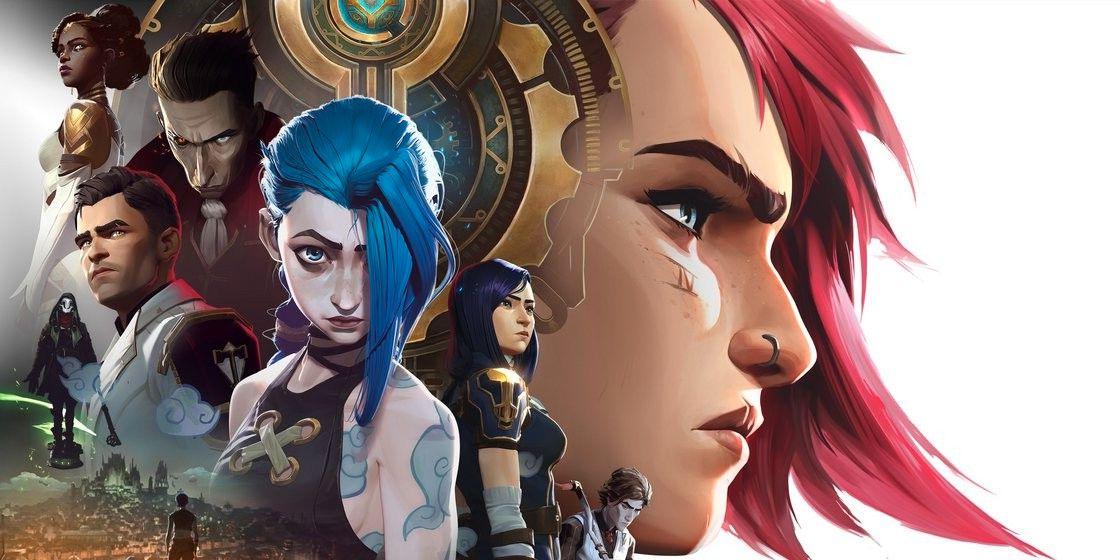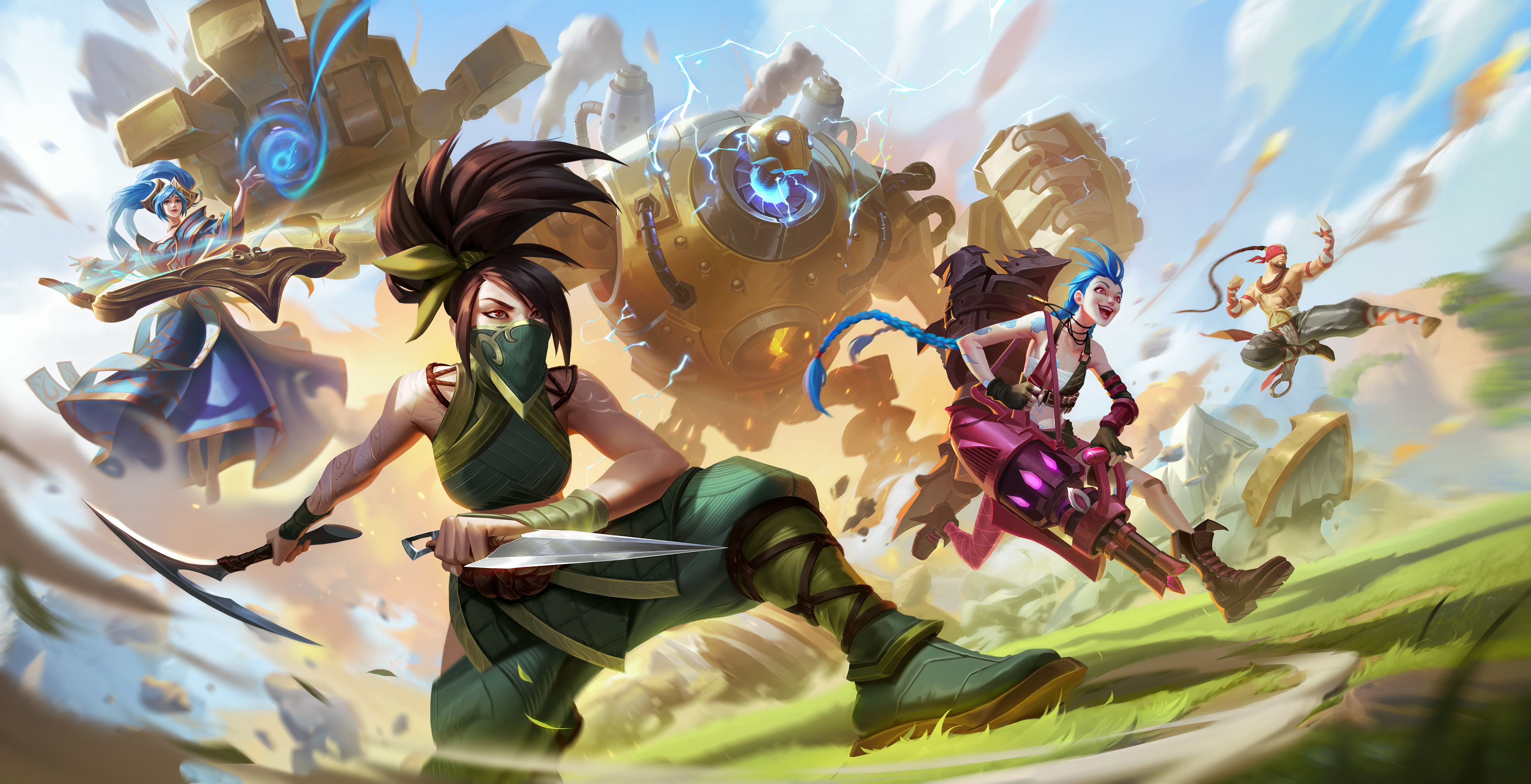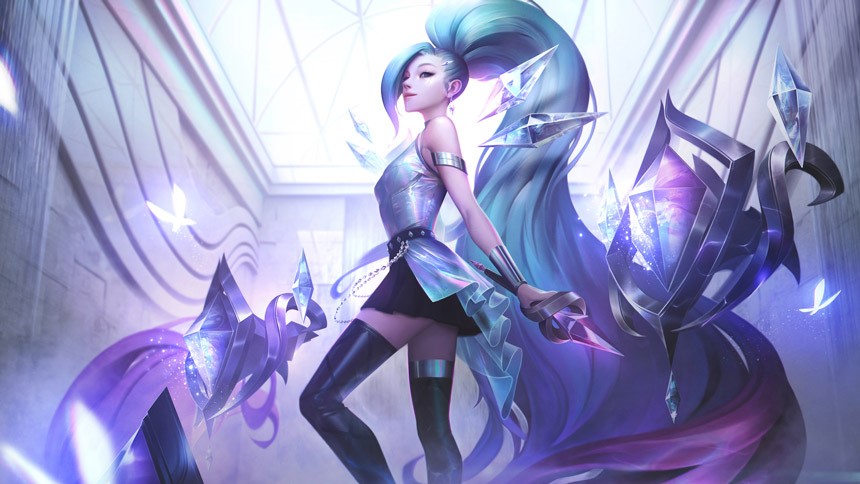Arcane is officially canon, and from now on League of Legends lore is going to stop contradicting itself all over the place, says Riot
"The essence of what makes a champion who they are will be reflected across everything Riot makes."

Riot's approach to League of Legends lore has always been a bit… flexible. Champion backstories have been repeatedly retconned, and the entire premise of the game has changed a couple of times since launch (remember when it was a literal sport?). More recently, as the Runeterra universe has expanded with books, spin-off games, and the TV show Arcane, inconsistencies have flourished, and it's been increasingly difficult for fans to point to an actual canon.
Well, that's about to change. In a new video, Riot's head of IP creative Laura De Young explains that, going forward, the goal will be to ensure all future League of Legends-related content is canon and fits together, and to resolve inconsistencies wherever possible.
"Going forward from today, all new storytelling is going to be part of one shared canon, rather than a jumble of different experiences that are similar but inconsistent," says De Young. "And our goal is to ensure that major events and our stories as well as the essence of what makes a champion who they are will be reflected across everything Riot makes"
She admits it won't be a quick process, but more of a gradual realignment (and presumably a firmer hand over things like the Riot Forge games, made by developers outside Riot). There will be some retconning, but it won't be a sweeping reboot of the setting—as much as possible the goal is to preserve already established characters and concepts.
That means changing how the team approaches fleshing out the story too. Short stories, for example, are largely out—they used to be one of the biggest ways lore was established in League of Legends, but in the video Riot admits that the majority of the playerbase doesn't read them. Going forward, they'll be focusing on games, TV, and other more visual mediums instead. Similarly, the cinematics that kick off each season will now always depict canon events, instead of wavering between story moments and scenes more akin to throwing all your action figures together.

An interesting outcome of this shift in strategy is that Arcane is now officially completely canon—the show represents the true origin of those characters, as well as big world-building elements like the creation of Hextech. It's been unclear since the show came out whether it represented a sort of alternate take on Runeterra or not, given some of its bigger clashes with existing game lore and its very different tone of storytelling. But it definitely makes sense to make it canon—it's been a huge mainstream success, and will represent a lot of people's first step into the world of Runeterra.
Presumably even things like the band KDA and the various weird skin themes (such as cyberpunk and D&D-inspired versions of the champions) will be included in this—for a while now, Riot has been seeding the idea of these alternate takes on existing characters being part of a wider multiverse of different versions of Runeterra. I won't spoil it, but that concept has been reinforced further in a recent spin-off.
Keep up to date with the most important stories and the best deals, as picked by the PC Gamer team.

Multiverse teases aren't the only part of this that calls to mind the MCU. In the last four years, Riot's been making a pretty major push to expand the scope of its setting beyond one videogame and into a major shared universe, of the kind every brand wants to have these days. Along the way, it's maybe learned how difficult it is to keep all your ducks neatly in a row. It's probably a bit late in the day to just now be deciding to have a coherent canon, but it certainly reinforces the direction the company has been taking—and probably points to even bigger plans to come.
Of course, the most important implication of all this is that, thanks to their Arcane cameo, the band Imagine Dragons are now officially canon in Runeterra. They'll have their own movie before you know it.

Formerly the editor of PC Gamer magazine (and the dearly departed GamesMaster), Robin combines years of experience in games journalism with a lifelong love of PC gaming. First hypnotised by the light of the monitor as he muddled through Simon the Sorcerer on his uncle’s machine, he’s been a devotee ever since, devouring any RPG or strategy game to stumble into his path. Now he's channelling that devotion into filling this lovely website with features, news, reviews, and all of his hottest takes.

